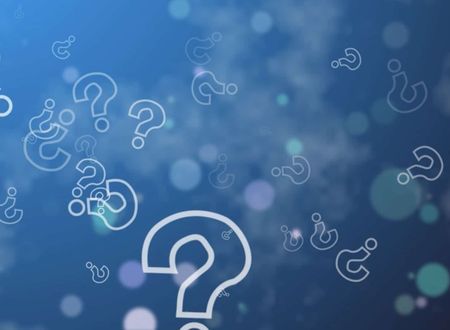“Control” – This word sounds very punishing. We do not like anyone controlling us or we often dislike being labelled as a control freak. This is my version on how control works in the world.
When a child is born, it is helpless and incapable of taking of itself. The parents overlook this taking care. From the parent’s perspective, the child belong to them and they are responsible for the growth of the child in the right direction with the right values. What is right direction and what is right values is again another vague perspective for most parents. I mention that it is vague since it is often based on personal experiences and beliefs of parents that gets firmed up based on what they have underwent in their growing up phase. Nothing wrong with it except that most parents often get rigid with the ideas and refuse to look at a different perspectives.
So, the born child is now controlled by parents. It is meant for the well-being of the child. The parents offer direction and try to instill values that they believe in and this is the first instance of control as visible to the growing child. “Control” then becomes the antithesis of total freedom for the child. Due to this very reason “control” always sounds punishing. Yet is the control on child necessary? Indeed it is, for the well-being and safety of the child, for the well-being of the family and for the well-being of the society. However, the control is based on the belief of the parents on what is right and beliefs of different persons are different. This is where control starts looking like a punishment. The growing child looks at the society and is able to see freedom elsewhere that is missing for him/her and deems that he/she is being controlled too much.
Control is not possible without power. The parents have power over the growing child by virtue of their ownership on the title “parents”. Yet does it signify ownership of the child?? Most often parents forget that their power over children is limited and time-bound. Ownership of child “forever” is a myth. As the child grows and becomes aware of it’s own powers, the power of the parents over the child starts diminishing. Thus “power” is key to control. unfortunately, for an adult parent, what begins as a well -meant action for the well-being of a ward become a habit and sadly often ends up as a power struggle with the now grown-up child.
In Spiderman movies, the catch phrase is “With great powers come greater responsibilities” and this definitely holds true in all kinds of powers- small or big. A parent’s power over the child is meant to help grow the child, shape the child’s thinking and make him ready to face the world, yet when the parent seeks to shape the grown-up child for one’s own status or future needs sake, it is the abuse of power.
Let’s delve on power a bit more and understand it. Power here refer to the ability to influence actions. Children through trail and error get acquainted with the extent of their influence on others. Another catch phrase is “Absolute Power corrupts”. This is also true. When we hold absolute power, we tend to get full of ourselves and refuse to pay heed to the contrary SOS signals emitting from various sources. We turn blind and unwittingly shirk from the responsibilities that causes mayhem in life of many. For eg: the child denied his chosen toys every time by the parent during childhood (for whatever reasons including valid ones) as a grown-up ends up most often representing those kinds of people who forcibly collect (hoard) whatever catches their fancy or become an opportunist willing to forgo good values learnt as a child. Power goes into one’s head and makes one become power-hungry and full of oneself. This makes us blind to signals that would have otherwise alerted us to probable pitfalls.
Core to entire power struggle and a primary power issue is that we concern ourselves mostly with our power to influence others rarely or dimly registering that in reality we hold limited power on ourselves. “Ability to influence actions” is key. Ever wonder what influences our individual actions? It is mostly sense-driven. We are governed by 6 senses. These include the 5 physical ones (viz. seeing, touch, hearing, smell, taste) and the 6th sense of thoughts. These senses control us and we hardly ever realize it. Most humans actually believe that they are in full control of themselves and are the final authority on their body or mind. Yet an honest survey “within” can lay bare the incorrect presumption.
If one has climbed any mountain (like I have), one might have experienced a quiet happiness. I have contemplated on that quiet happiness that comes from managing to climb a small mountain that is an Everest equivalent for us in that moment. The happiness reflected the joy of winning against one’s own sense information that kept suggesting that this (climbing) is impossible. This joy emanated from the depth of my soul and let me confess, our discovering our own soul pleases us like nothing else. Such victories are unfortunately limited and indeed most often we just are driven by our senses to give up easily so as to not upset our own senses. Yet by giving up, we lose the signal with our own soul and realise that the connect was temporary and weak. Sadness that we feel is nothing but a disconnect with our soul every time we satiate or quieten our senses by giving in to their demands.
Inner turmoil is always a fight for supremacy between senses and the soul. Control is all about trying to gain supremacy over the human senses for a better and stronger signal from our own soul. Unfortunately, due to false beliefs, we own up our senses but do not own the soul. We feel that senses belong to us, however the soul seems distant. Thus, the cries from the senses always ring louder to us than the whimper sound that we hear from the soul, should we care to tune in.
So, how do we gain mastery over senses given that their cries are loud, ringing and painful? Let me go back to example of climbing the mountain. Every sense organ screams and we feel a pain while ascending. How do we deal with it? We stop, assuage the senses, allow it some time to get used and again re-start. When the going becomes extremely tough, we even retreat (or rest) sometimes, with the promise to return at it again with better preparation. Ultimately it is all about making the senses aware that reaching the top of mountain is essential and most important. One keeps repeating such climbs often so as to allow the senses to adjust plus also accept the reality slowly and steadily that such actions are imminent, and no amount of crying can make it go away. This is how we master our senses for a climb. It is the only known way for the internal journey too. We keep working on the ascend with practice.
We had mentioned Spiderman Dictum earlier “With great powers comes great responsibilities.”. Are you wondering what is the responsibility here? Responsibility is in understanding that senses are also an essential tool in achieving our goal (of permanent connect with the inner soul). It is essential to take care of the senses by recognizing the fake cries and respecting the truly painful cries. One must learn to recognize when to stop, when to re-start and when to give freedom to the senses. It is essentially recognizing ourselves as parents to our own senses and treating them as naughty children who needs a firm but loving hand. Direction must always come from us and not from them! The ownership over the senses is time-bound and it ends when the body expires.









Comments & Discussion
5 COMMENTS
Please login to read members' comments and participate in the discussion.